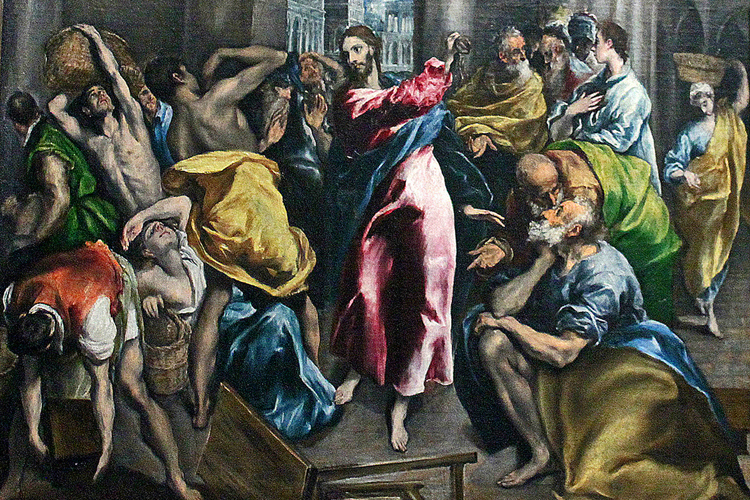This summer Gather’s three-session Bible study by Kelly Fryer focuses on confronting power that is used to oppress, mistreat or persecute those Jesus called “the least of these.”
It’s made me think not just about how I confront power in my own life, but also how I use power.
Because, let’s face it, we all have some kind of power—in our families, in our congregations, in our workplaces. And God calls us to use this power for good rather than to make ourselves more comfortable and secure.
“What God requires of us is a proactive stance,” Fryer writes, “doing everything we can to ensure others are treated fairly and have enough.”
In addition to my work as Gather’s associate editor, I teach online writing classes in the evening. I love teaching, but there are times when the last thing I want to do is go home and grade papers.
I use the little bit of power I have as an instructor to organize my class and time carefully. But my students’ lives are as complicated as mine, and sometimes I am confronted with the choice to use my power to extend grace or to keep order.
[bctt tweet=”Sometimes I am confronted with the choice to use my power to extend grace or to keep order.” ” username=”womenoftheELCA”]
Recently a student seemed to be having a rough semester. He had trouble following directions and turned in his first six assignments late.
We had a talk about his organizational skills, time management and attention to detail. He promised to get back on track with assignment seven. But he didn’t. So, I gave him a zero, hoping he’d finally learn.
Weeks later, a grade appeal showed up in my email. The student was asking one last time that I accept his late assignment.
Did I really want to take extra time from my schedule to go back and grade his paper? If I didn’t, he might complain to my boss, but my boss and I have a good relationship. Surely, my boss would side with me.
That night I got into bed and opened the book I’d been reading, Rob Bell’s What is the Bible?
“Jesus teaches about entrusting yourself to God with all the worries and stresses of your life,” Bell writes.
Sounds great, I thought. I can do that.
“Then there is a second step,” Bell continues, “you entrust others to God.”
Fantastic, I told myself. God can deal with this student. I’ve done all I can.
“We entrust others to God because if we don’t we will inevitably deal with our anxiety and worry and fear by trying to control and manipulate them,” Bell insists. “People with a high need to control others are generally doing it as a way of dealing with the lack of control they’re experiencing within themselves.”
Ugh. Was I really trying to help the student become more responsible? Or was this about me keeping my own schedule intact?
I shut the book and opened my Bible to the actual Sermon on the Mount, where Jesus says:
But if anyone strikes you on the right cheek, turn the other also; and if anyone wants to sue you and take your coat, give your cloak as well (Matthew 5:39-40).
I decided that I had to change the student’s grade. I couldn’t allow myself to use my own little bit of power solely to protect my own interests. I needed to teach myself to extend grace—not because the student deserved it, but because God calls me to use whatever power I have not for myself, but for good.
Fryer’s third Bible study session is about upending tables. Sometimes, we have to upend our own.
Sarah Carson is associate editor for Gather magazine.
+++++++
Painting by El Greco (1541- 1614) Christ driving the traders from the temple | work in public domain
